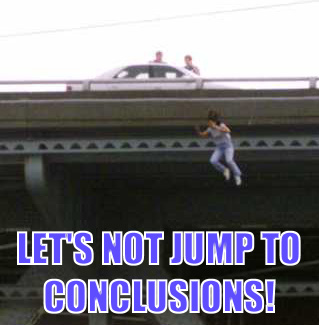Feel free to post any questions you may have about Thursday's test. You should have been given a sheet to practice the types of questions on the test today. If you can do those, the test will be a piece of cake...
We will finish Charlotte Doyle tomorrow. There's still a few twists left in the book!
Of course, the MLK speech was cancelled. The only H/W your have left is using the worksheets and blog to practice for the test.
Only 2 days of excellence left...It's actually quite sad to think it's almost over.. Didn't time fly!
Pages
Wednesday, May 26, 2010
Monday, May 24, 2010
Friday, May 21, 2010
End of Year Grammar Review Test - next Thursday
What can you remember about these topics:
Test will be open book and open notes. Go back to Sept 2009 in blog archives and spend next week tackling some of the exercises you did at the beginning of the year/each month on the different topics we covered. You'll be amazed at what you have learned... I hope!
subject and predicates
comma rules
fragments and run-ons
simple, compound, and complex sentences
prepositions and prepositional phrases
nouns
verbs
tenses
adjectives
Labels:
Adjectives,
Comma Rules
Thursday, May 20, 2010
Wednesday, May 19, 2010
Effective Conclusions - Theory
Read this for background information on creating a conclusion for tomorrow's lesson.
Strategies for writing an effective conclusion
Here is a brief list of things that you might accomplish in your concluding paragraph(s).* There are certainly other things that you can do, and you certainly don't want to do all these things. They're only suggestions:
Play the "So What" Game. If you're stuck and feel like your conclusion isn't saying anything new or interesting, ask a friend to read it with you. Whenever you make a statement from your conclusion, ask the friend to say, "So what?" or "Why should anybody care?" Then ponder that question and answer it. Here's how it might go:
You: Basically, I'm just saying that education was important to Douglass.
Friend: So what?
You: Well, it was important because it was a key to him feeling like a free and equal citizen.
Friend: Why should anybody care?
You: That's important because plantation owners tried to keep slaves from being educated so that they could maintain control. When Douglass obtained an education, he undermined that control personally.
You can also use this strategy on your own, asking yourself "So What?" as you develop your ideas or your draft.
Strategies for writing an effective conclusion
Here is a brief list of things that you might accomplish in your concluding paragraph(s).* There are certainly other things that you can do, and you certainly don't want to do all these things. They're only suggestions:
- include a brief summary of the paper's main points.
- ask a provocative question.
- use a quotation.
- evoke a vivid image.
- call for some sort of action.
- end with a warning.
- universalize (compare to other situations).
- suggest results or consequences.
Friend: So what?
You: Well, it was important because it was a key to him feeling like a free and equal citizen.
Friend: Why should anybody care?
You: That's important because plantation owners tried to keep slaves from being educated so that they could maintain control. When Douglass obtained an education, he undermined that control personally.
- Return to the theme or themes in the introduction. This strategy brings the reader full circle. For example, if you begin by describing a scenario, you can end with the same scenario as proof that your essay is helpful in creating a new understanding. You may also refer to the introductory paragraph by using key words or parallel concepts and images that you also used in the introduction.
- Synthesize, don't summarize: Include a brief summary of the paper's main points, but don't simply repeat things that were in your paper. Instead, show your reader how the points you made and the support and examples you used fit together. Pull it all together.
- Include a provocative insight or quotation from the research or reading you did for your paper.
- Propose a course of action, a solution to an issue, or questions for further study. This can redirect your reader's thought process and help her to apply your info and ideas to her own life or to see the broader implications.
Subscribe to:
Comments (Atom)





